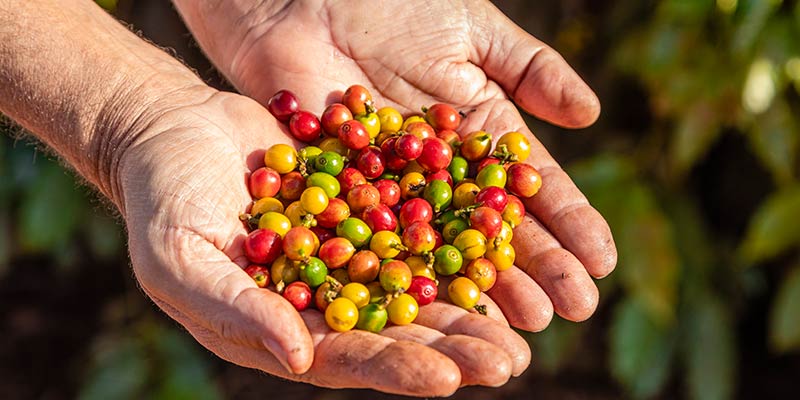
Most coffee farmers are practicing mixed farming, which includes coffee production, food crops production and livestock husbandry. In this regard, the key problems identified are:
Low productivity and quality of coffee
Farmers manage old coffee stands that are poorly managed, and hence the productivity is low. This needs improvement through improved management practices like organic fertilizer application, pruning, stumping as well as planting quality coffee seedlings. Even though there is inherent quality, care during harvesting and post harvest handling are critical to get quality coffee. Coffee farmers lack basic skills and required skills to properly handle harvesting and post harvest cares. Further, farmers also get better prices if their farms are certified using differen standards like Organic, FairTrade and Rainforest Alliance. Organing farmers into economically feasible groups and trainings on the on the requirements of certification standards are equally vital.
Veterinary clinics
Veterinary clinics most coffee farmers also have livestocks, but lack health facilities for livestock.
Farmers’ Training Center (FTC)
Farmers’ Training Center (FTC) Some communities lack FTCs. FTCs are vital since they serve as training centers on extension and entry points to reach wider community.
Our Works

Access to clean water
Access to clean water in most rural areas of Ethiopia, the local communities do not have access to clean water.

Electric power supply
Access to electric power supply in most rural areas, people use wood fuel for both heat/cooking and light.

Rural road construction
Rural roads are vital to access market and public service facilities like health centers and schools.

Primary schools construction
Primary Schools construction access to primary education is also among the top priority problems.
Become Volunteer
Spread the awareness of helping people, so that they can live a normal life in the society and educate their children that everyone deserves.
Join Now